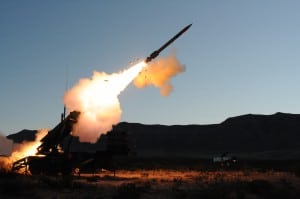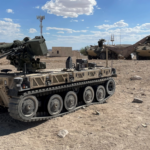
The U.S. will prioritize sending air defense interceptors to Ukraine that were intended for delivery to other countries under foreign military sales cases, the White House confirmed on Thursday. John Kirby, spokesman for the National Security Council, told reporters the reprioritization for Ukraine covers missiles for Patriot and National Advanced Surface-to-Air Missile Systems (NASAMS). “The United States government has made the difficult but necessary decision to reprioritize near-term planned deliveries of foreign military sales to other countries of particularly Patriot…

 By
By 










